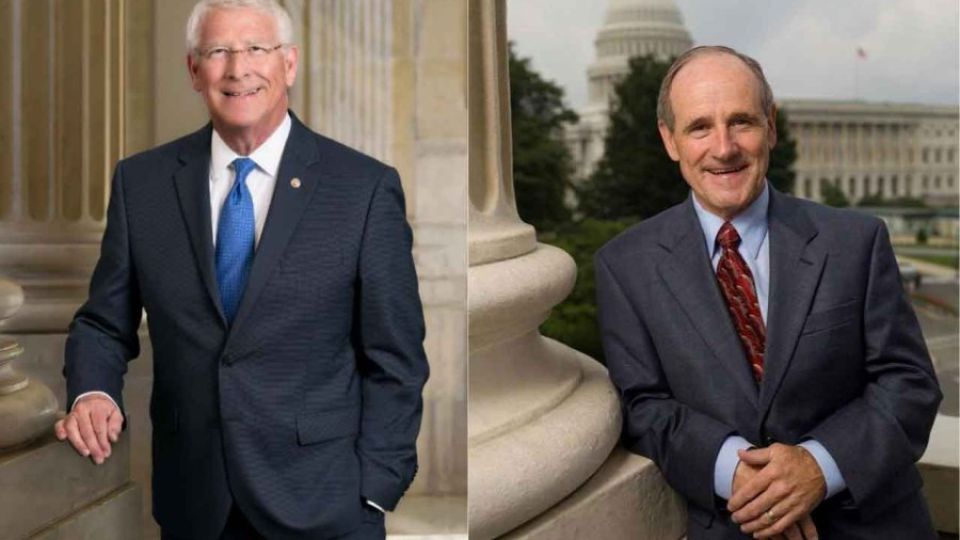January 9, 2025
SEOUL – US senators who have advocated for the redeployment of tactical nuclear weapons to the Korean Peninsula and the Indo-Pacific region have assumed leadership of key committees overseeing the US State and Defense departments.
Sen. Roger Wicker (R-Mississippi), chair of the Armed Services Committee, and Sen. Jim Risch (R-Idaho), chair of the Foreign Relations Committee, have both called for a bold overhaul of the US nuclear posture to bolster deterrence and safeguard South Korea and Indo-Pacific allies against escalating nuclear threats from North Korea and China.
Wicker emphasized the critical need to strengthen deterrence to maintain security and stability, citing North Korean leader “Kim Jong-un’s continued efforts to build more nuclear weapons and ballistic missiles capable of striking the United States and our allies in the Indo-Pacific” in his military investment plan report released in May last year.
“Each year, because there is no immediate diplomatic solution in sight, the United States must ensure that deterrence does not erode on the Korean Peninsula,” the report read.
“That means maintaining readiness with regular US-Republic of Korea (South Korea) military exercises, keeping a persistent US military presence on the Korean Peninsula, and exploring new options — such as nuclear-sharing agreements in the Indo-Pacific and redeployment of US tactical nuclear weapons on the Korean Peninsula — to bolster deterrence on the Korean Peninsula.”
In the report, Wicker also pointed out that the US should “begin discussions with the Republic of Korea, Japan and Australia to gauge their willingness to engage in a nuclear burden-sharing arrangement with the US, similar to those existing with NATO allies.”
The Republic of Korea is the official name of South Korea.
The US stationed tactical nuclear weapons on the Korean Peninsula from 1958 to 1991, but withdrew them in the early 1990s as part of a defense strategy shift as the Cold War came to an end.
The move aimed to reduce global nuclear tensions and undermine North Korea’s justification for pursuing nuclear weapons. In December 1991, the two Koreas signed the Declaration on the Denuclearization of the Korean Peninsula, vowing not to produce, possess, deploy or use nuclear weapons.
Wicker, however, asserted that the US withdrawal decision had done little to curb North Korea’s advancing nuclear ambitions in a 2024 May commentary for Fox News, justifying the redeployment of tactical nuclear weapons.
“US leaders hoped, for example, that removing our nuclear arms from South Korea would incentivize North Korea to stop the production of its own. Instead, the security situation both on the peninsula and in the Pacific has become significantly worse,” Wicker said.
Risch also called on the current Joe Biden administration to “deny DPRK goals and strengthen extended nuclear deterrence” by considering the redeployment of US nuclear weapons to South Korea. He made this statement to Voice of America in March 2023, referring to North Korea’s official name, the Democratic People’s Republic of Korea.
Risch also underscored, “In Asia, extended deterrence is particularly weak,” noting that the US had withdrawn all nuclear weapons from the region, unlike its approach in Europe, during a hearing titled “The Future of Arms Control and Deterrence” in May last year.
“East Asian allies not only worry about China and Russia, but a North Korea that is on track to field a diverse nuclear arsenal in the hundreds. The US should modify our nuclear forces to reassert deterrence and reassure our allies,” Risch said.
Under the Biden administration, Seoul and Washington established the Nuclear Consultative Group in accordance with the April 2023 Washington Declaration to enhance coordination on Korean Peninsula contingencies by integrating South Korea’s advanced conventional capabilities with US nuclear forces. However, the Biden administration has ruled out the option of redeploying tactical nuclear weapons.
“Importantly, we should explore options for returning nuclear weapons to the theater for the purpose of assuring our allies. Discussing this should not be a taboo. Our enemies are watching,” Risch added.


